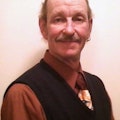Collision industry leaders in Arkansas want to heighten I-CAR’s presence in the state by broadening its base of instructors and educational offerings, and augmenting I-CAR’s lagging district committee structure within the state.
With some 430 independent body shops in the state, there appears to be an appropriate pool of potential students, yet industry participation is low compared to other areas of the country, according to Jeff Peevy, I-CAR’s lead regional manager for North American operations.
“Arkansas is probably the least active” of the 50 states,” says Peevy. “Traditionally a local industry is involved with conducting classes.”
State Chairman Jim Young says one immediate goal is to conduct classes on an ongoing basis and regularly provide shops in the state with the latest repair information from the manufacturers.
Young—an I-CAR veteran instructor who recently moved from Tennessee to become manager of Gwatney Chevrolet’s collision shop in the Little Rock area—is embarking on an effort to heighten I-CAR’s Arkansas presence. “The I-CAR volunteer system works best when it is fully supported,” he says.
Communities open for committees include Fayetteville, Fort Smith, Jonesboro and Texarkana.
Currently Young, Monty Fulmer and Ken Leslie are the only Arkansas-based instructors; a fourth I-CAR instructor, Todd Hoffman, has become an Arkansas traveler—commuting from Houston to teach classes when needed.
“We’re really open as to where we conduct classes,” says Young, noting that sessions have been held at the Gwatney facility and at Pulaski Technical College in Little Rock. More seminars will be offered when additional instructors step-up to teach a highly motivated pool of potential students.
“We need local people to do the training,” Leslie reports. In his view, interest “has exploded” in the post-secondary bodywork course load he conducts at Pulaski. “They see the importance (of additional I-CAR training) when they leave my program.”
“They’re very enthused about it,” says Young. “I’ve had people drive an hour-and-a-half to get here on a weeknight.”
An increased level of instruction will benefit Arkansas’ entire collision repair industry, according to Young. He notes that statewide there are just seven I-CAR Gold Class service facilities—some areas of the country have seven Gold Class shops in a single city.
Young suggests that anyone wishing to be an Arkansas instructor should have suitable on-the-job technical experience and be prepared to meet I-CAR’s objectives, which call for several levels of testing and student-teaching over a 60- to 90-day period before a potential instructor steps to the lectern.
“I-CAR instructors are very dedicated to this industry and passionate about it,” says Young.
Peevy agrees and says, “You have to want to be an instructor.”
The pay is $10 per student, per unit and your preparation time is likely to make teaching a volunteer endeavor. “It’s extremely rewarding” in other ways, Peevy continues, referring to the involvement, influence and camaraderie that instructors experience.
Further program benefits and requirements are available at www.I-CAR.com or contact Young at (501) 982-2102.
About the Author
James Guyette
James E. Guyette is a long-time contributing editor to Aftermarket Business World, ABRN and Motor Age magazines.
